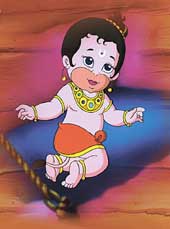 |
 |
| Prosenjit, Konkona Sen Sharma and Rituparno Ghosh at The Park; Yash Pandit and Manjari Fadnis at the same event. Pictures by Aranya Sen |
One is a black-and-white film on infidelity in contemporary life, the other is a colourful canvas on a dislocated habitation in the Seventies. There’s nothing much in common between Rituparno Ghosh’s Dosor and Anjan Das’s Faltu, except for the production credits: Planman Life (rechristened Planman Motion Pictures).
Saturday afternoon saw the two units getting together for an interface at The Park hotel. With only a day of shooting left, Rituparno was more in the mood for some stocktaking. “There was an incident which happened in an organisation where I used to work. It had inspired some literary pieces and is also the idea behind this film,” said the film-maker awaiting the release of Antarmahal.
If Antarmahal is set in the times of Queen Victoria, Dosor is today’s tale of infidelity, starring Prosenjit and Konkona Sen Sharma as husband and wife. “It never gets judgmental though,” claims the maker. “It rather attempts to universalise the concept.”
For Prosenjit, whose character survives a major accident, lying in the bed for most of Dosor has posed to be the biggest problem. “I never stand on my feet in the entire film and so the characterisation has had to be from my face, which was a big challenge for me,” stressed Tollywood’s top hero.
Having tasted success in Bollywood, Konkona returns to a Bengali film after Rituparno’s Titli. “But Titli was more like a family picnic in Lolegaon. This time I found a new Konkona, sharpened and honed in an acting identity of her own, which is not an extension of her mother. There was a new attitude and new understanding,” said Rituparno, who was all praise for his lead actors. “Both of them have contributed to the script.”
Prosenjit, on his part, got deeply involved with the details of his character. “He drew his own plans of styling, about his stubble, his wounds and also consulted doctors on his medical condition and the stages of healing,” added the film-maker.
Guiding the tone density and other technicalities of black-and-white was cinematographer Aveek Mukherjee. “It’s something new and was an entirely artistic decision,” he said.
“But that didn’t affect our performances at all. I keep forgetting that the film is in black-and-white,” smiled Konkona.
If rains play hide and seek in the last week of July, Anjan Das will have to sprinkle water on the dry Behrampore land for a slushy effect for the second schedule of Faltu. Based on Syed Mujtaba Siraj’s Ranir Ghater Brittanto, the film traces the lives of some uprooted people, a mad woman and her offspring.
“Faltu is a quest for one’s identity ? here, the bus driver played by Yash (Pandit). Maybe people will be repelled by certain things in the film but those are meant to be that way,” said Das, who finished 60 per cent of work in the February schedule this year.
The cast also comprises Soumitra Chatterjee, Indrani Halder, Nirmal Kumar, Sumanta Mukherjee, Debesh Roy Chowdury and Manjari Fadnis, among others. Behind the camera is Shirsha Roy.
Bollywood pair Yash and Manjari, both launched in Planman’s Rok Sako To Rok Lo, have had to shed their glamorous looks to become villagers from the Seventies.
“Faltu has changed my life. For me acting meant dancing around trees and throwing your charm around. But for this film, I worked on my looks, body language, diction, dialogues and expressions,” said Yash.
“And I turned into a village girl with oily hair,” laughed Manjari, a far cry from Tuktuki on Saturday in jeans and a spaghetti top.

